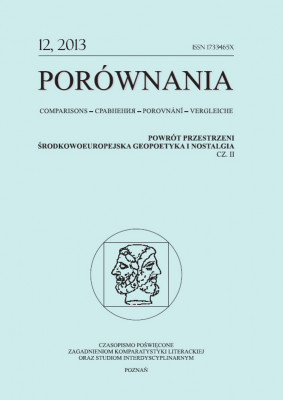Lithuania and Identity. Miłosz and Miłosz about the Need of “a Defined Place on Earth”
The draft concerns the problem of identity questioned by history and the mod- ern philosophical view, as well as an attempt to confirm it and rebuild it in accordance with the idea of two poets and essayists of the last century: Czesław Miłosz and his older cousin, a French lyric poet – Oskar Władysław Miłosz. Both the author of Confession de Lumuel, and the author of The Land of Ulro build a parallel between a philosophical plan of the loss of identity and a historical breakdown of “private motherland”. Both authors present the first loss as the result of expulsion of traditional metaphysical concepts and mythological imagination from the discourses of the 20th century. The other one, confirmed in their own biographies by the fate of the emigrants, “the travelers of the world”, is perceived as the analogue of the primary, expressed in a philosophical manner, alienation of a human being in time and space. Both the French symbolist and the Polish poet make an attempt to subject their eradication, eo ipso ques- tioned identity, to therapy, referring to “private motherland” – Niewiaża valley. The first one confirms his “suddenly found »lithuanianism«” with action. The other one elaborates on the myth of “mystical Lithuania” in his poems and essays.
| Article Title | Type | Size |
|---|---|---|
| Stankowska | [pdf] | [273 KB] |
